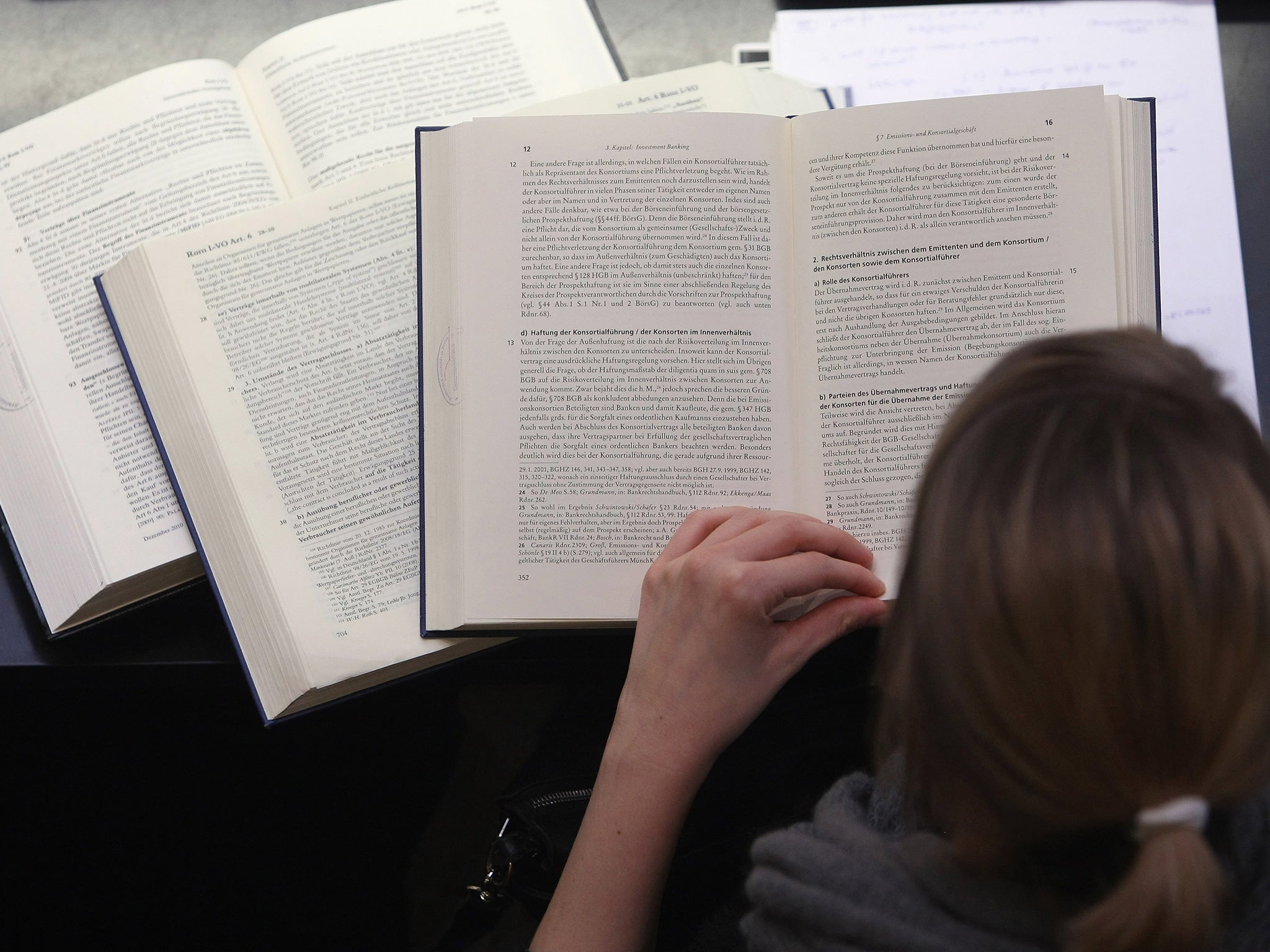Leicester University set to offer US-style flexi-degree courses
Students will be able to select what they study from a series of 'major' and 'minor' subject options

A leading university is to offer all its students the chance to study new US-style flexi-degree courses from next September.
Under the system, students opting for Leicester University will be able to select what they study from a series of “major” and “minor” subject options.
The idea, similar to the system already operating in many leading US universities, is designed to give them a broader range of studies which will equip them better for life in the 21st century workplace.
Paul Boyle, the university’s new vice-chancellor, published the scheme as part of the university’s new strategic plan.
“We will identify a series of major courses which offer a standard degree and develop a whole series of minor courses that students can study alongside them,” said Professor Boyle.
The 10 best universities in the UK
Show all 10“It’s the kind of approach that employers say they want and we have found that lots of students say they believe they would benefit from this mixed approach.
“For instance, you could study physics as your major and take a language option alongside it - French, German or Italian- which would increase your appeal on the international jobs market.
“We’re a very different system from the United States - but the US does allow a little more flexibility in study at the start of a student’s career.”
Under the plan, students will typically spend 75 per cent of their time on their major study option - and 25 per cent on their minor option.
Flexi degrees are becoming more popular in the UK with several universities - such as King’s College London, Southampton, Sheffield, Surrey, Keele and Worcester - going down that route although Leicester’s scheme is said to offer the most flexible curriculum for students.
Professor Boyle said a number of students had expressed interest in pursuing environmental studies as part of their “minor” option. It could also boost interest in studying course they have been unable to pursue at school level - such as creative writing, film studies, ancient history or international relations.
Professor Boyle believes this new approach will help establish his university as one of a new brand of “distinctive elite” universities - higher education institutions renowned for their expertise in a particular area.
Former Universities Minister David Willetts has always talked of his desire to get away from the idea of a divide between elite and non-elite universities - and encourage a range of universities to come up with areas they can specialise in. He is also a keen supporter of “major, minor” degree courses.
“Bright people have diverse interest,” said Professor Mark Peel, Leicester’s pro-vice-chancellor for student experience, “Lots of science students have a talent for the arts or already study a language.
“Many students combine very different kinds of subjects at school, At the moment, these students are often encouraged to concentrate on one subject for three or four years with their other interests relegated to a hobby.”
Leicester’s new approach comes at a time when the number of sixth-formers studying for the International Baccalaureate - with its seven subject curriculum - as an alternative to A-levels is growing.
Leicester is a past winner of the university of the year award by the Times Higher Education magazine and won eight place amongst the 160 universities in the UK for its research excellence in an international league table.
Subscribe to Independent Premium to bookmark this article
Want to bookmark your favourite articles and stories to read or reference later? Start your Independent Premium subscription today.

Join our commenting forum
Join thought-provoking conversations, follow other Independent readers and see their replies